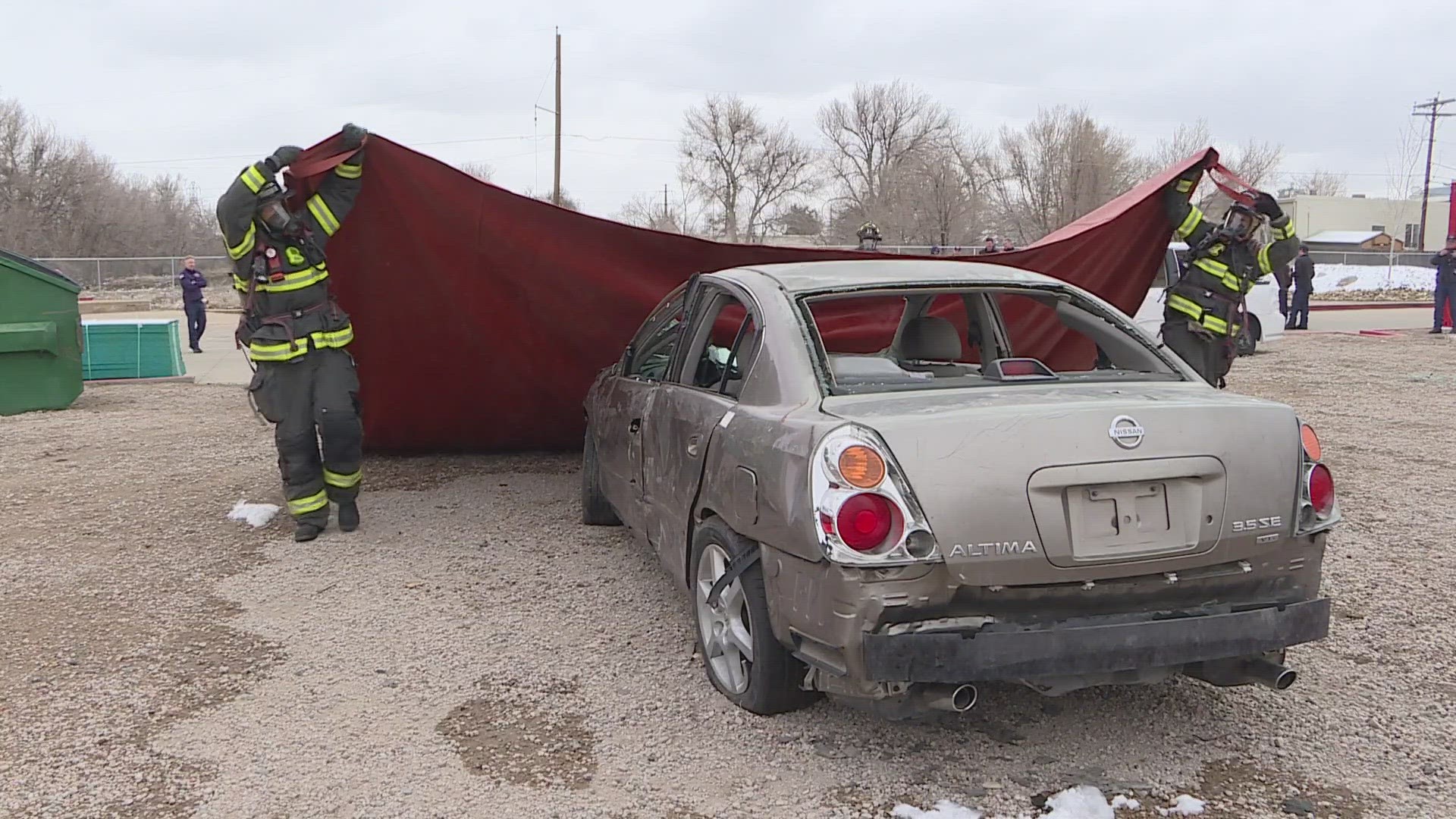CENTENNIAL, Colo. — After reports of electric cars catching fire across the country and the vehicles' growing popularity, some Denver metro area firefighters are preparing for this new danger.
While electric vehicle fires are not common, they are much harder to put out.
"As we have been doing this class, they had a 5-alarm fire in the Bronx that was caused by one scooter fire," Captain Chris Wells with South Metro Fire's hazmat team told a group of South Metro firefighters on Thursday.
Wells is leading the training for his department.
Crews have to learn a different technique with these kinds of fires because water isn't an option.
"Normally, we can put a fire out with about 500 gallons of water, and that's what we carry on our fire trucks. That doesn't work at all," Wells said. "If we start putting water on it, it actually adds to the toxicity of the fire from the smoke. Then the runoff from those heavy metals and hydrofluoric acid that comes off these batteries, that water runoff will actually pollute the environment."
What seems to be working is a single-use fire blanket. By covering the car with the blanket, firefighters are able to deprive the fire of oxygen.
"The batteries in that car are still burning underneath but when we removed that oxygen, it allows the fire to basically subside," he said.
Firefighters can leave the blanket on the car but Wells said it would take 15 hours for the fire to burn out.
"It's not the magic bullet," he said. "It buys us time."
The blanket allows firefighters to pretreat the area around the fire with water. It gives them time to protect homes, trees or anything else around it.
"The fires burn much hotter," Wells said. "We are looking at 2,500 degrees is how hot these fires can burn compared to 1,700 degrees of a typical fire."
Once the tarp comes off the car, the fire starts again.
"When we have talked to the EPA the cleanest burning way we can deal with it is let the fire burn itself out. That usually takes about an hour," he said.
South Metro Fire said research shows these kinds of events are rare with cars that meet a certain safety standard called UL Certification. Wells said they see more problems with cheap-end scooters, and cars with after-market batteries.
SUGGESTED VIDEOS: Investigations & Crime

